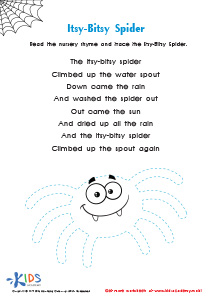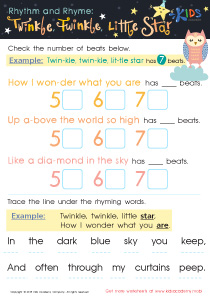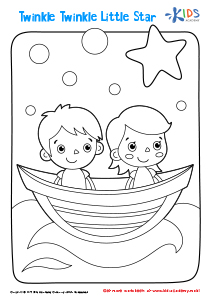Nursery Rhymes Worksheets for Ages 5-7
5 filtered results
-
From - To
Discover the magic of classic nursery rhymes with our engaging worksheets for children aged 5-7 at Kids Academy. Our carefully crafted activities help young learners develop essential reading and language skills while igniting their love for literature. Each worksheet combines fun illustrations with popular nursery rhymes, encouraging kids to read, write, and comprehend through interactive exercises. Perfect for classroom use or homeschooling, these worksheets support early literacy and cognitive development, fostering creativity and imagination. Boost your child's learning journey and make education delightful with our Nursery Rhymes Worksheets, designed to inspire a passion for reading in your little one.
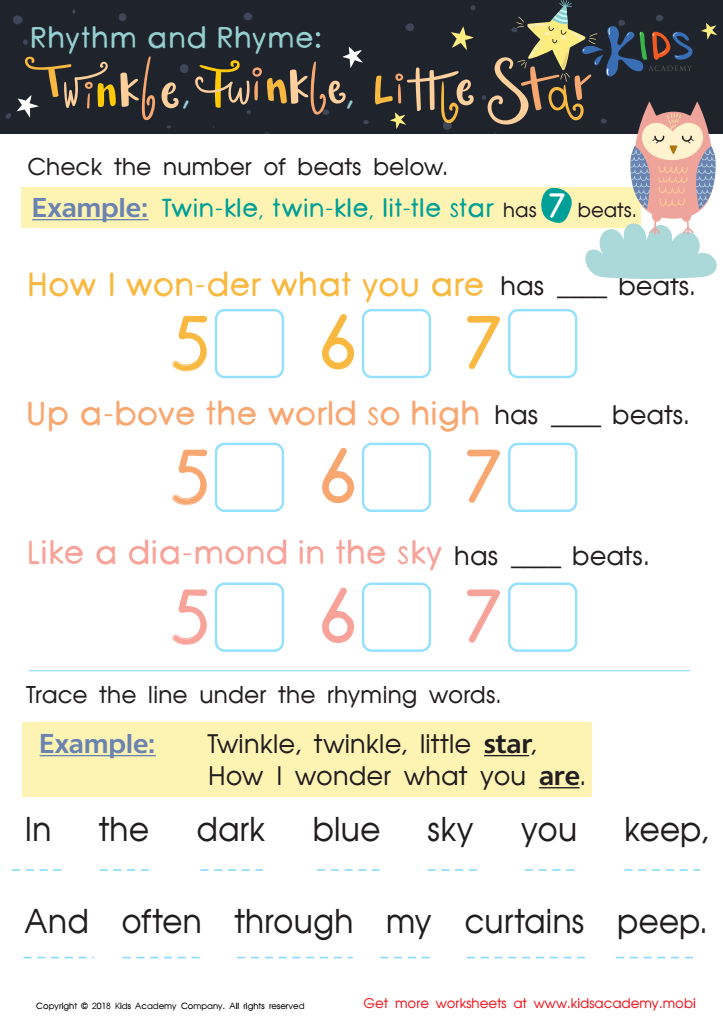

Rhythm and Rhyme: Twinkle, Twinkle, Little Star Worksheet
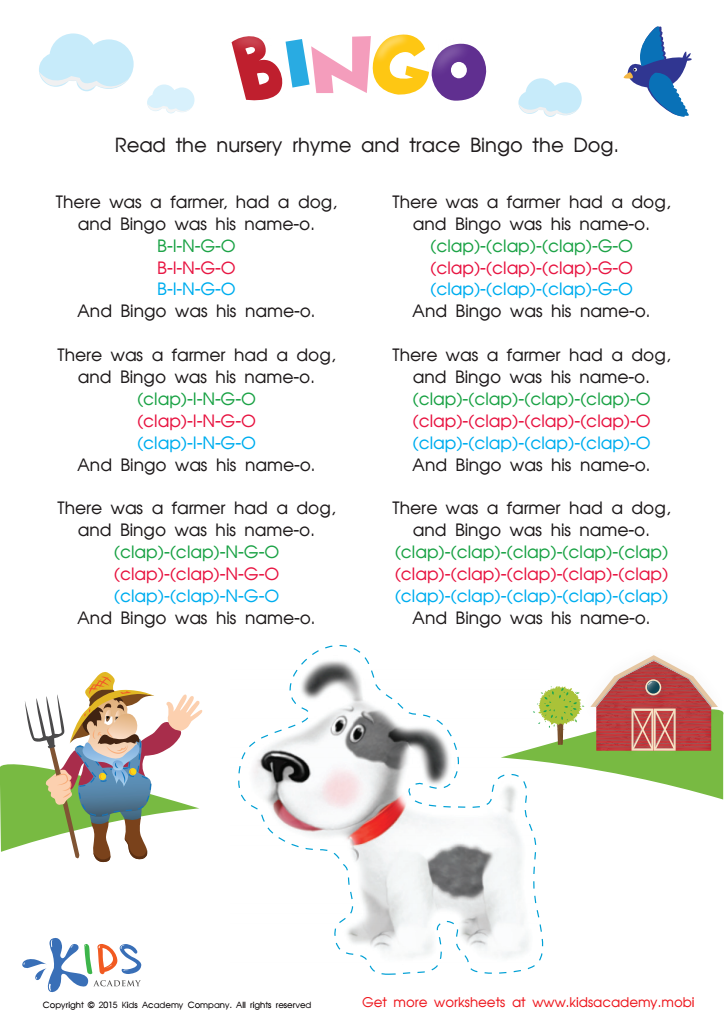

Nursery Rhymes: The Bingo Song Worksheet


The Five Little Monkeys Nursery Rhyme Worksheet
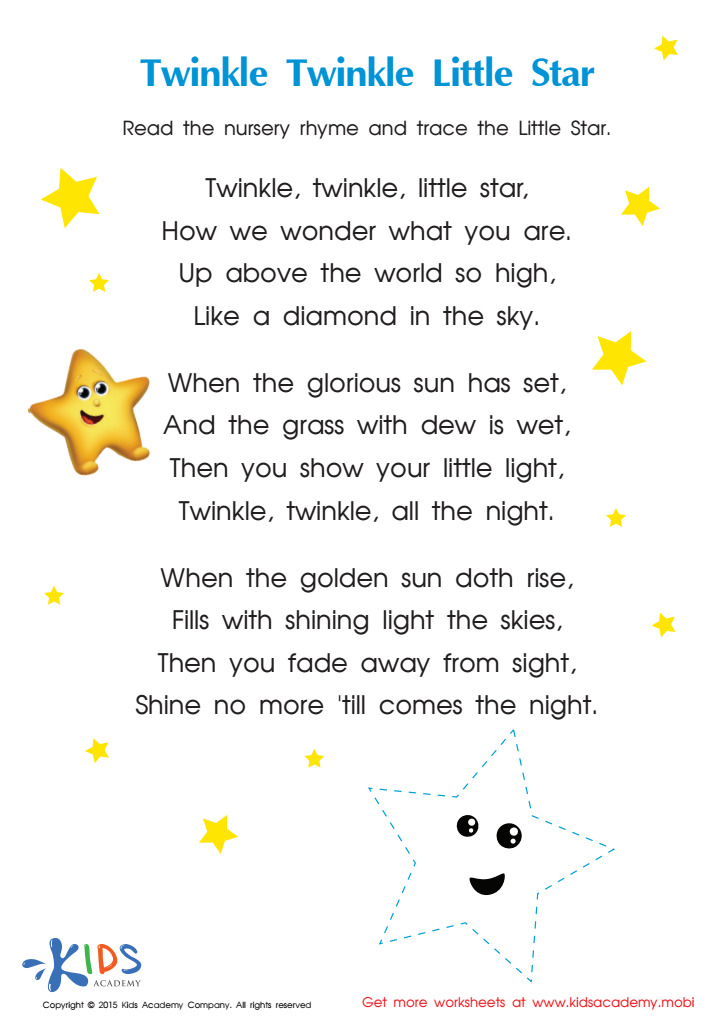

Nursery Rhymes: Twinkle Little Star Worksheet
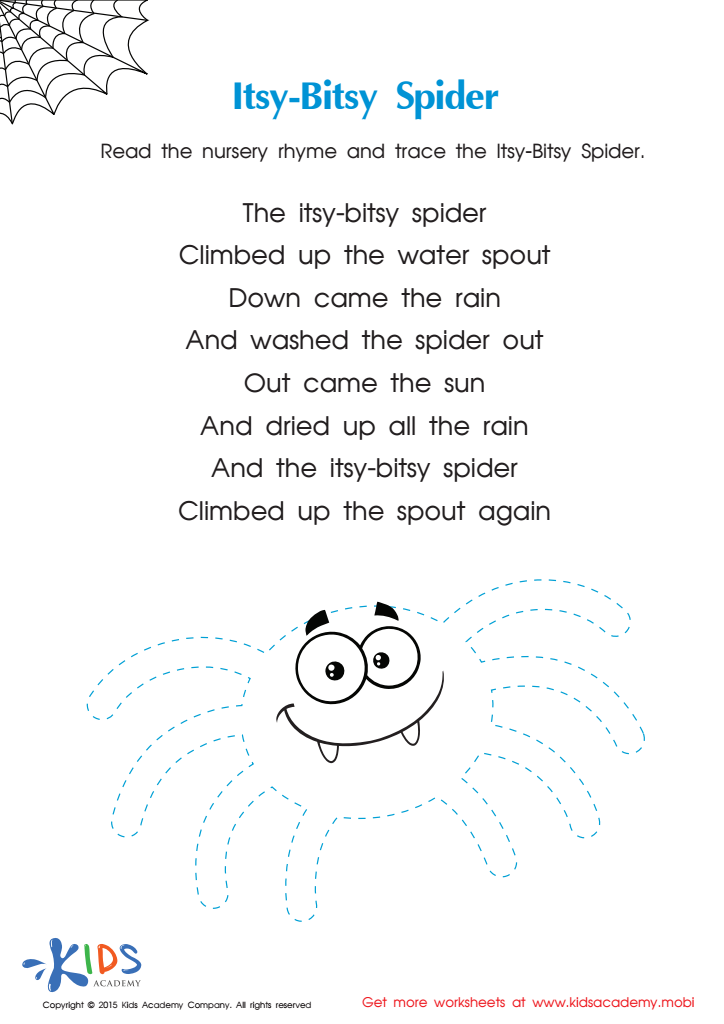

Itsy Bitsy Spider Nursery Rhyme PDF Worksheet
Nursery rhymes play a critical role in a child's development, especially between the ages of 5-7. These short, rhythmic, and often rhyming poems captivate young minds, laying a solid foundation for literacy skills. For starters, nursery rhymes enhance vocabulary by introducing children to new words and phrases within a context they can easily understand and remember. The rhythmic nature of these rhymes also aids in phonological awareness, helping kids discern different sounds, which is a vital skill for reading.
Furthermore, nursery rhymes contribute to the development of listening skills. By paying attention to repetitively sung or spoken verses, children learn to follow sequences, recognize patterns, and predict forthcoming lines. This predictability boosts memory retention, making it one of the oldest tools for education handed down through generations.
Additionally, nursery rhymes engage children emotionally and socially. They usually come with simple, engaging stories that evoke emotions like happiness, surprise, or curiosity. Sharing these rhymes in a group setting also promotes social interaction, teaching children about rhythm, meter, and collective recitation. Parents and educators who emphasize nursery rhymes are, therefore, fostering an environment rich in language development, social skills, and emotional growth, setting a strong foundation for future learning achievements.

 Assign to My Students
Assign to My Students











